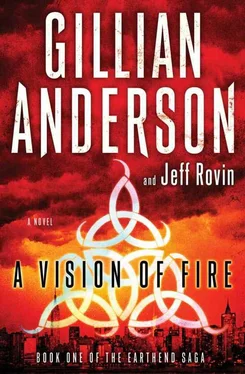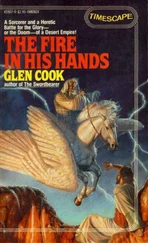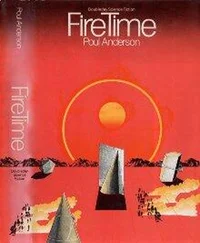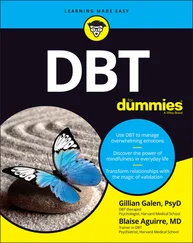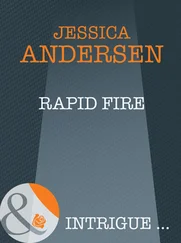Gaelle shook her head and seemed about to speak, but Houngan Enock interrupted. “We do not value loneliness in Haiti, doctor.”
“What does that mean exactly?” Caitlin queried, restraining her increasing defensiveness.
“What I said. We are here to help her with this important decision.”
They heard an upswelling of noise from the street. Caitlin looked through the window. The group outside had increased in size and intensity.
“You are certainly bringing a lot of ‘help,’” Caitlin said quietly.
Gaelle gave her the ghost of a smile. At last, a connection , Caitlin thought.
Gaelle’s stepmother spoke in Creole. Gaelle translated for Caitlin. “She is saying, ‘Don’t blame our visitors. Since the video was on the Internet, we have been seeing many strangers around. Some Haitian, some white.’”
Caitlin spoke up. “Have they said anything to you, Gaelle? Done anything?”
“Only talk,” the girl answered unhappily. “It doesn’t matter.”
“Yes, it does. You should not have to live with that.” Caitlin cautiously moved a hand across the desk toward her. “Please let me help you.”
“So they can talk more?” Enock challenged.
“So I can help you stop an incident like the last one if it happens again.”
Gaelle looked at Caitlin, then at her desk, and shook her head slowly. “I must say no, doctor.”
“But why?”
Gaelle’s stepmother said something quickly, made an axe-like gesture with her hand. Gaelle translated, though it was unnecessary. “The decision is made.”
Enock smiled and placed himself on the edge of the desk, between Gaelle and Caitlin. He began to dig in his own plastic bag and pull out small boxes and bags. Caitlin tried to catch the madame’s eye but she was watching her son impassively.
Caitlin stood and stepped to one side. It was becoming clear what was soon to happen.
“Gaelle, is it your wish to seek help through a Vodou ceremony?” she asked.
They heard a sudden chant from the people in the street and then several voices rose in a Christian hymn. Marie-Jeanne and Enock began to speak quickly in Creole but Gaelle cut them off.
“No, I will go,” she said emphatically.
Gaelle stood and glided toward the door with elegance. From the window Caitlin saw her approach the Catholic priest. There was no sign that he was of special significance to her but she was respectful and unafraid. The people nearest the priest shot the young woman suspicious looks.
Aaron, now leaning on the doorjamb of the back room, spoke to Caitlin. “People are on edge,” he said.
“Clearly.”
“It’s not just this,” he said. “In early November there is usually a severe spike in violence in Port-au-Prince. It’s the Vodou holy days. Grave robbers desecrate Vodou territory, throw rocks at their holy people, that kind of thing. Sometimes there are riots, though I think it’s really all a vent because of the poverty here.”
Caitlin understood his point immediately: anything could spark off this crowd. Especially if they thought someone was possessed. That was why Gaelle had been so quick to deny it when they spoke.
“And there is white bias,” Enock snapped. “They come here and tell us that we are primitive yet they have no knowledge of our faith. Frightened people spread outrageous lies—that it was Vodou that caused the earthquake, that we bargain with devils. We do not do this ‘black magic’!” He shot the accusation at Caitlin personally.
“I would never say that you do,” Caitlin replied.
“Your questions in the car were… superior.”
“I never meant—”
“No. Your kind has been like this!” He threw his chin angrily toward the crowd and the priest. “Your arrogant manipulation of reality is more black magic than ours!” He slammed a jar of red powder onto the table next to him. “We look farther into reality. You… you just twist it.”
“How?” Caitlin asked, trying to stay focused and understanding.
“You peck at it, like chickens at meal. You study the pieces instead of the whole. That is not a cure! That is”—he took a moment to search for the word—“what you call dissection. It is autopsy.”
Against her will, Caitlin’s temper started to rise. But she kept her mouth shut.
“From what I know of Vodou,” Aaron said to no one in particular, “it’s a way for people to gather, bring up their problems, share food, dance, and feel that they matter—that they’re part of something bigger.”
“Your explanation is like the surface of the sea.” Enock scowled, moving his hand like rippling waves. “It is just what the white outsider sees.”
“You misunderstand me,” Aaron said. “I think all of those things are essential for our souls.”
“I tell you, you know nothing,” Enock sneered. “Either of you.”
“Then educate us!” Caitlin said.
Marie-Jeanne said something quickly to Enock that stopped him in his tracks. Enock paused and then casually translated for Caitlin.
“She says she knows what caused Gaelle’s fou in the market.”
All eyes snapped to Marie-Jeanne. She was rubbing her forehead and staring at the ceiling.
Enock continued translating. “You do not need to hypnotize Gaelle. She will tell you. Three days ago a tourist fell from Marie-Jeanne’s boat. Marie-Jeanne dove in and rescued him but she nearly drowned herself. When Gaelle heard of this she was very upset.”
Caitlin said nothing. She felt as if she’d been hit in the chest by one of those large breakers on the shore. This could not be a coincidence.
They heard voices rise in a hymn from the street. Caitlin looked out the window and there were thirty-five or forty people outside the house. Gaelle, still in the middle of them, turned from the priest and entered the office, frowning.
“They are children, sometimes,” she said. “Fighting, fighting, fighting about the business of others.”
Caitlin heard but did not process what Gaelle was saying. Her mind was still on what Enock had translated. “Gaelle, I must talk to you. I came here initially to help my patient in New York, to learn—”
“No!” the girl insisted before she even sat down. “Everything stops now. No confession, no hypnotism, nothing. I am not sick, except of all this nonsense!”
“You’re absolutely right,” Caitlin said, with sudden inspiration. She had to convince Gaelle, had to show her what was at stake. “This is not illness. It’s an assault of some kind.” She pulled out her phone and scrolled through her files.
“What are you saying?”
“Please, I can show you…”
Caitlin found the iconic picture of the girl from Hiroshima and handed the phone to Gaelle. A shade of empathy and fear crossed the young woman’s face.
“Who is this?” she asked.
“That is a girl who just survived a nuclear bomb. The look on her face, that intensity of suffering, is exactly what my patient in New York is experiencing. And what I believe you have experienced too.”
Enock, Aaron, and Marie-Jeanne all looked over Gaelle’s shoulder. For a moment Caitlin thought Gaelle might weep. The young woman handed the phone to her stepmother and spoke in Creole.
Enock stood peremptorily. “You are simply manipulating her. Sympathy is not a revelation,” he stated. “Nor is it action. I will show you both.”
He grabbed the small jar he had slammed on the table, then moved two chairs to clear a space on the floor and closed the door to the veranda. The crowd outside immediately responded to his actions as if they knew what was coming next. Their tones of disapproval rose into almost a chant.
But what was happening next? Caitlin thought she had tapped into something with Gaelle, that she was getting somewhere, but was this silence the girl’s only response? Was she going to submit to Enock?
Читать дальше
